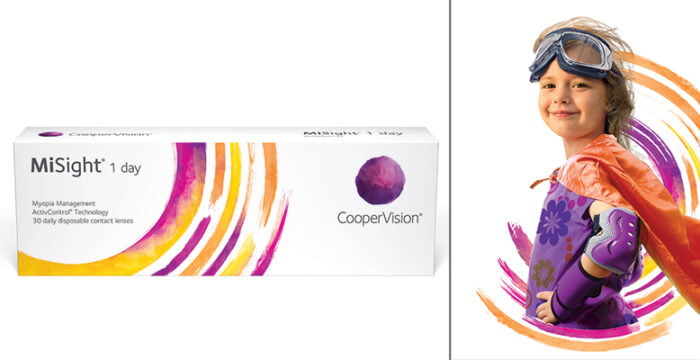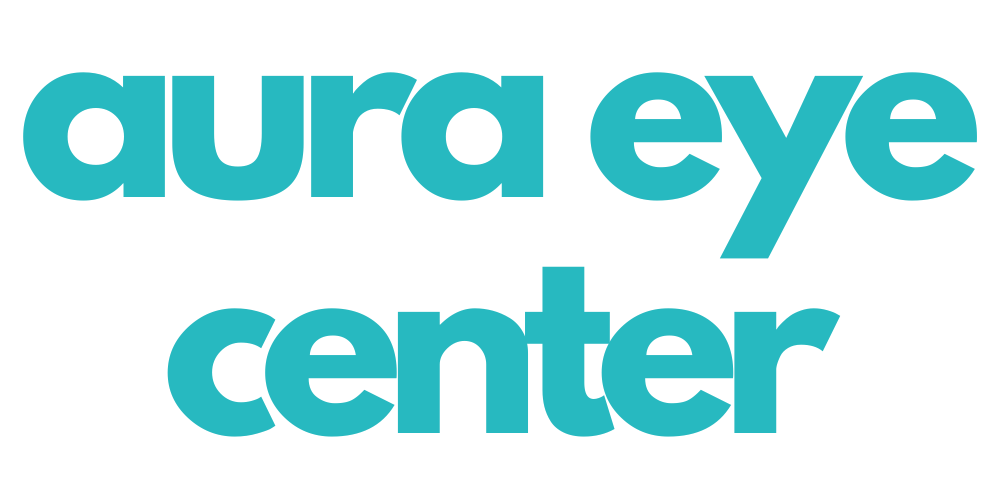What is Myopia?
Myopia, commonly known as nearsightedness, is a refractive error of the eye where distant objects appear blurry, while close-up objects can be seen clearly. This occurs when the eyeball is slightly longer than normal or when the cornea has too much curvature, causing light rays to focus in front of the retina rather than directly on it. As a result, the images formed on the retina are out of focus, leading to blurred vision for distant objects.
Here at Aura Eye Center, we have solutions that can stop and correct myopia.
How can We Slow Myopia?
If your child is experiencing difficulties with distant vision due to nearsightedness, or myopia, there’s a solution that not only corrects but also helps prevent their eyesight from deteriorating as they age.
Using MiSight® 1 day soft contact lenses, uniquely crafted for managing myopia. These lenses are FDA approved for effectively slowing down myopia progression in children who start using them between the ages of 8 and 12.

See a Simulation of Myopia
Here at Aura Eye Center, we have solutions that can slow down and correct myopia.
Schedule your consultation today!
Importance of Myopia Management
The prevalence of myopia has been increasing globally, and it is becoming a significant public health concern. Myopia often develops during childhood and can progress throughout adolescence and early adulthood. High myopia (severe nearsightedness) is associated with an increased risk of various eye conditions, including retinal detachment, myopic macular degeneration, and glaucoma, which can potentially lead to vision loss.
Myopia management refers to the proactive approach taken by optometrists to slow down or control the progression of myopia in children and young adults. The importance of myopia management with an optometrist lies in several key reasons:
1. Reducing Progression: Myopia tends to worsen over time if left unmanaged. Optometrists can employ various techniques and treatments to slow down the progression of myopia, such as specialized eyeglasses, contact lenses, or atropine eye drops.
2. Preventing High Myopia: High myopia is associated with a higher risk of vision-threatening complications. By managing myopia early on, optometrists can potentially reduce the risk of developing high myopia and its associated complications.
3. Improving Quality of Life: Nearsighted individuals often experience difficulties in daily activities, such as playing sports, driving, and viewing presentations in the classroom. Myopia management can improve visual comfort and enhance the overall quality of life for those affected.
4. Reducing Dependence on Corrective Lenses: While eyeglasses and contact lenses provide clear vision, myopia management can help reduce the rate at which the prescription changes. This may lead to decreased dependence on corrective lenses or, in some cases, even halt the progression of myopia entirely.
5. Long-Term Eye Health: By addressing myopia early and effectively, optometrists can potentially reduce the risk of eye health complications associated with high myopia, thus safeguarding the long-term visual health of their patients.
Myopia management is a tailored and personalized approach, as not every method is suitable for everyone. Optometrists use a combination of clinical assessment, family history, and other factors to determine the most appropriate management plan for each patient. Regular follow-up appointments allow for adjustments and refinements to ensure the most effective outcomes.
It is crucial for parents and individuals with myopia to seek professional guidance from an optometrist regarding myopia management. By doing so, they can take proactive steps to safeguard eye health, optimize visual function, and improve the overall well-being of those affected by myopia.

